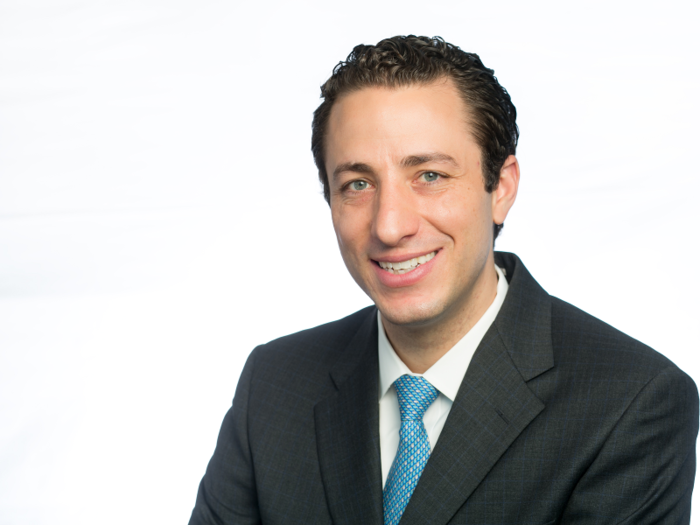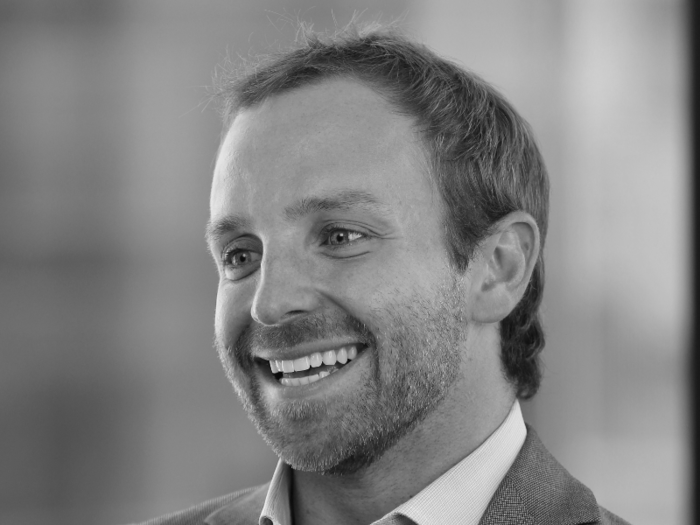- Home
- slideshows
- miscellaneous
- There's about to be a new wave of Silicon Valley millionaires. Here's 6 tips from top wealth advisers about how they should prepare.
There's about to be a new wave of Silicon Valley millionaires. Here's 6 tips from top wealth advisers about how they should prepare.
1) Plan in advance

2) Don't go it alone, because 'people do not like paying taxes'

No matter when they get involved, wealth advisers often act as the quarterback for a team, helping with various components of portfolio management.
"We think of ourselves as an outsourced family office," Marc Rollins, an adviser at JPMorgan who works predominantly with founders, said. "We play the combined role of the chief financial officer and chief investment officer and chief operating officer. We help curate a group of great advisors around the clients."
The core team typically includes a trust and estate attorney, along with a Certified Public Accountant. Even if a client has previously worked with lawyers and accountants, Rollins said his team can recommend advisors who are well versed in specific planning strategies.
The wealth adviser then coordinates the team, said Justin Winters, managing director at Treasury Partners, which oversees $8 billion.
"If everyone’s not communicating, you’re not getting the best advice as a client," he said. "If the financial adviser does something the accountant doesn’t know about and they get a huge tax bill at year end, that’s not helpful to the client."
Delegating to professionals pays off, financially and personally.
"The other day, a spouse came in and said her husband was spending so much time thinking about the taxes involved in the transaction that he was engulfed, because he didn’t have a team around him to think about those issues," Winters said. "People do not like paying taxes – that’s one of the biggest things I hear about when I meet with someone. Making sure you have the right people around you is really important. It’s real money."
The non-core team can include a variety of professionals for specific tasks, such as getting insurance or buying a home. Multiple bankers said they'll recommend and work with specific, discreet realtors to mitigate privacy concerns. Sometimes, they'll bring in cybersecurity professionals to evaluate a whole family's privacy – a spouse, for example, might have a non-secure email account that could be an easy in for a hacker.
Wealth advisers also act as gatekeepers. Often, newly-wealthy clients sees an explosion of interest from their networks in angel investing, and they need someone to turn down friends and family gently.
3) Get the basics down

Most of the bankers told Business Insider that one major difference between their east and west coast clients is level of familiarity with basic portfolio management.
JPMorgan's Rollins said they sometimes need an introduction to the world of investing, such as understanding the differences between mutual funds, exchange-traded funds, and private investments.
"Everyone on the east coast knows what 2 and 20 is. Fewer people out here truly understand what it is," he said, referring to the standard fees for private equity and hedge funds. "Often we find clients and prospects who have accounts with other firms are invested in private investments, but they don’t understand the fees or liquidity."
After working on basic investor education, advisers can plan out a portfolio. Compared with their peers in other industries, techies' holdings are often lighter on illiquid investments, since they like to use some of their new liquidity for venture investing.
"You’re getting calls left and right from friends and people in the community starting firms and funds," Rollins said. "We’re all for that; we just want to make sure that bucket is sized appropriately."
They also consider the profile of the company that made the client wealthy. If they're still significantly invested in, for example, a mid-cap technology stock, clients should hold fewer similar investments. And while clients are often keen to make angel and venture capital investments, advisers caution against investing in similar companies to avoid too much exposure to one industry.
4) Help kids understand money

Some founders have been so focused on building their companies that they haven't had time for kids.
Those who do have families have some critical and philosophical questions to consider: How much money will their kids receive, in trusts, wills, and other set-ups? How will they communicate that inheritance, and potentially major, immediate changes in lifestyle?
"In presentation with families, we try to avoid numbers – it clouds the kids’ minds most of the times," Treasury Partners' Winters said. "At the end of a presentation, you constantly have to reset expectations. We say, 'we as parents have created this wealth and we’re going to enjoy it with you. If there’s anything at the end, great, but I wouldn’t expect anything.' What that does psychologically is that the kids go out and make their own way."
That echoes Warren Buffett's advice for wealthy parents: To him the perfect amount to leave children is ''enough money so that they would feel they could do anything, but not so much that they could do nothing.''
Most wealth managers have developed curriculum for talking about new wealth, with conversations tailored to maturity level – a five-year-old could learn about saving allowance for a new toy, whereas a teenager may start to learn about the basics of investing. Parents can weave in lessons about philanthropy, too, to communicate the responsibility many feel their new wealth entails.
5) Say no to the yacht

For founders who have toiled in a two-bedroom apartment with multiple roommates for years, a sudden influx of cash can make buying a home, boat, or other big-ticket purchase an attractive proposition.
Part of the wealth adviser's job is to help clients understand the costly and less glamorous components of these purchases, from docking fees to property taxes, maintenance costs, and mortgages.
Morgan Stanley's Curtis compared his clients to professional athletes who make a lot of money in the short-term and build a lifestyle around that income.
"Sometimes, in your 30s, you assume this is going to happen for every decade for the rest of your life, but what if it doesn't?"
See more: 9 things that seem like a good investment but are actually losing you a ton of money
That's not to say a newly-wealthy executive shouldn't enjoy their money.
"Everyone will expand their lifestyle and they should," Curtis said. "The best investment our clients can make is in their lives. We encourage that. By the same token, we sit back and say, 'what I want to do for you is take this event and look at this lifestyle that is going to change – let’s make sure everything you’re doing is sustainable for a long time period.'"
The yacht, unfortunately, may not qualify.
6) Get ready to be in the spotlight

The soon-to-be wealthy need to worry about more than just their portfolio, cautioned Chris Jackson, partner at San Francisco-based Epiq Capital Group, a multi-family office for the ultra-wealthy.
"The biggest thing that surprises people is how public their life becomes, going from private to public," Jackson said.
Jen Forster, another Epiq partner, said she works with clients to figure out which of their investments will be reported publicly and how to maintain privacy for a family and any household staff.
"After a liquidity event, if you’re holding stock in a company, everybody will be scrutinizing every move you make," she said.
Their team often introduces soon-to-be public CEOs to those who have gone through the same process, so they know what to expect.
"Even at some of these bigger companies, people are really surprised at how much visibility people have into their life or how much more interested people are in their life when they become a public company CEO," Jackson said.
Popular Right Now
Popular Keywords
Advertisement